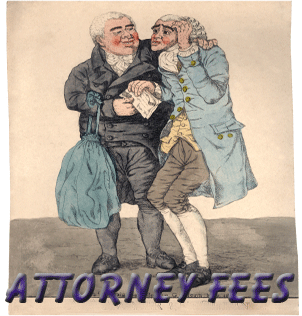Last week, on April 30, 2012, in Kirby v. Immoos Fire Protection, Inc., the California Supreme Court ruled on an issue whether a party prevailing on a section 226.7, for an alleged failure to provide meal and rest breaks, may be awarded attorney’s fees. Surprisingly to everyone, the Court held that neither prevailing defendant nor prevailing plaintiff is entitled to attorney’s fees under section 226.7. Despite the fact that in this specific case, the decision was in favor of Plaintiff Kirby, as a whole, this decision strongly favors employers and arguably has a chilling effect on meal and rest break litigation.
Introduction
In general, a prevailing party may recover attorney’s fees only when a statute or an agreement of the parties provides for fee shifting. Labor Code section 218.5 requires the awarding of attorney’s fees to the prevailing party “[i]n any action brought for the nonpayment of wages, fringe benefits, or health and welfare or pension fund contributions.” This provision awards fees to the prevailing party whether it is the employee or the employer; it is a two-way fee-shifting provision. However, Labor Code section 218.5 “does not apply to any action for which attorney’s fees are recoverable under Labor Code Section 1194.” Labor Code section 1194 provides that employees who prevail in an action for any unpaid “legal minimum wage or . . . legal overtime compensation” are entitled to recover attorney’s fees. It is a one-way fee-shifting provision.
Facts
In Kirby, Plaintiffs filed a lawsuit against Immoos Fire Protection, Inc. (IFP) alleging various violations of Labor Code and Unfair Competition Law, including a claim for unpaid meal and rest breaks under section 226.7. After settling with Doe Defendants, Kirby dismissed with prejudice all claims against all parties. However, IFP moved to recover attorney’s fees from plaintiffs under section 218.5 for prevailing under section 226.7. The trial court awarded the fees and on appeal, the fees were affirmed. Plaintiffs appealed.
The California Supreme Court held that in light of the relevant statutory language and legislative history, that neither section 1194 nor section 218.5 authorizes an award of attorney’s fees to a party that prevails on a section 226.7 claim.
Analysis
Section 1194
In Kirby, Plaintiffs first contend that the required payment for missed meal or rest periods is tantamount to a statutorily prescribed minimum wage and therefore, section 1194 applies and only a prevailing plaintiff could recover attorney’s fees under section 226.7. The Court rejected this argument, explaining that the term “minimum wage” ordinarily refers to the statutory or administrative floor below which an employee’s compensation may not fall. Section 1194’s language “legal minimum wage” does not refer broadly to any statutory or administrative compensation requirement or to any compensation requirement based on minimum labor standards. The court concluded that section 1194 does not authorize an award of attorney’ss fees to employees who prevail on a section 226.7 action for the nonprovision of statutorily mandated rest periods. Neither the plain text, the history of section 1194, nor the language of related statutes provides any reason to depart from the ordinary meaning of section 1194’s words.
Section 218.5
Employer argued that section 218.5 authorizes an award of attorney’s fees to the prevailing party in litigation over meal and rest break claims. Therefore, the issue before the Court was whether a section 226.7 claim, which concerns an employer’s alleged failure to provide statutorily mandated meal and rest periods, constitutes an “action brought for the nonpayment of wages” within the meaning of section 218.5. In light of the statutory text and the legislative history of section 218.5 and section 226.7, the Court concluded that section 218.5’s two-way fee-shifting provision does not apply to section 226.7 claims alleging the failure to provide statutorily mandated meal and rest periods.
As stated above, section 218.5 requires the awarding of attorney’s fees to the prevailing party “[i]n any action brought for the nonpayment of wages, fringe benefits, or health and welfare or pension fund contributions.”
The Court explained that section 226.7 is not aimed at protecting or providing employees’ wages. Instead, the statute is primarily concerned with ensuring the health and welfare of employees by requiring that employers provide meal and rest periods as mandated by the IWC. When an employee sues for a violation of section 226.7, he or she is suing because an employer has allegedly “require[d] [the] employee to work during [a] meal or rest period mandated by an applicable order of the Industrial Welfare Commission.” (§ 226.7, subd. (a).) In other words, a section 226.7 action is brought for the nonprovision of meal and rest periods, not for the “nonpayment of wages.”
In sum, the legislative history shows that the Legislature (a) considered including a one-way fee-shifting provision in favor of employees in section 226.7, (b) ultimately deleted the provision from the final version of section 226.7, and then (c) gave no indication that section 218.5’s two-way fee-shifting rule should apply to section 226.7 claims.
Practical Impact of Kirby
The decision is definitely in favor of employers; however, whether it will reduce the number of lawsuits filed by Plaintiffs seeking to recover compensation for unpaid meal or rest breaks will remain to be seen. While the doors to attorney’s fees under section 226.7 are closed, Plaintiffs may still request attorney’s fees by alleging a Private Attorney General Act cause of action which comes with attorney’s fees provision under section 2699(g)(1).
For example, section 558 states that any employer or other person acting on behalf of an employer who violates any provision regulating hours and days of work in any order of the Industrial Welfare Commission shall be subject to a civil penalty. In Thurman v. Bayshore Transit Management, Inc., the California Court of Appeals held that employees may recover unpaid premiums for missed meal and rest periods under the PAGA. Therefore, the PAGA remains a strategic tool for plaintiffs to pursue meal and rest period claims under Labor Code section 558.


